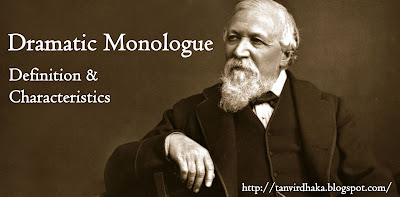The influential poetry are those words that enter from the ear to.Poetry can provide a mirror for us to see ourselves, and a window into others' experiences. Here are the poetry collections
Monday, February 25, 2019
The Oscars as
always are a mixed bag, often better for the couture
than for the films that grab the gold. The
Green Book was not a dreadful film and it may well pass the ten-year test,
making the cable movie channel rounds a decade from now. But the Driving Mr Shirley plotline,
cringe-worthy ending around the Christmas tree, and Viggo Mortenson’s noble (failed)
attempt to make Italians look
Sunday, February 24, 2019
Ab roz uske aanai ka intezaar kerta hon...
Ab roz uske aanai ka intezaar kerta hon,
Main waswason ke ijaad ka karobaar kerta hon,
Ahd-e-wafa na rahe, hojaye tarq-e-taluq bhi,
Dur jane se uske mager main inkaar kerta hon,
Guzri raat ke gham ko badalon main urra ker,
Aanai wale shub ki zindagi dushwaar kerta hon,
Kisi aur ke yaad rakhne ka kya bharosa,
Main apne bhool-jane per aeitebaar kerta hon,
Roz-e-hashr bhi main davedaar-e-kufr honga,
Ke ab bhi tumhari parsai per israar kerta hon,
Kehte hain ghazal-saz mujhe mehfil-e-adab main,
Zikr jab tumahri adawaton ka barbar kerta hon,
Everyday I long for their arrival,
I am a trader of the whispers of betrayal,
I accept the end of all we had together,
This distance - but - I refuse to accept,
I turn my night's pain into clouds of smoke,
Destroying the dawn of tomorrow's morning,
No reason to believe in their remembering,
I choose instead to believe in my forgetting,
On judgement day, I will choose to deny God,
As I deny your many betrayals in front of me,
They call me a poet in the company of the learned,
When I recite to them the cruelties of your love,
- Hassan Bin Fahim
Main waswason ke ijaad ka karobaar kerta hon,
Ahd-e-wafa na rahe, hojaye tarq-e-taluq bhi,
Dur jane se uske mager main inkaar kerta hon,
Guzri raat ke gham ko badalon main urra ker,
Aanai wale shub ki zindagi dushwaar kerta hon,
Kisi aur ke yaad rakhne ka kya bharosa,
Main apne bhool-jane per aeitebaar kerta hon,
Roz-e-hashr bhi main davedaar-e-kufr honga,
Ke ab bhi tumhari parsai per israar kerta hon,
Kehte hain ghazal-saz mujhe mehfil-e-adab main,
Zikr jab tumahri adawaton ka barbar kerta hon,
Everyday I long for their arrival,
I am a trader of the whispers of betrayal,
I accept the end of all we had together,
This distance - but - I refuse to accept,
I turn my night's pain into clouds of smoke,
Destroying the dawn of tomorrow's morning,
No reason to believe in their remembering,
I choose instead to believe in my forgetting,
On judgement day, I will choose to deny God,
As I deny your many betrayals in front of me,
They call me a poet in the company of the learned,
When I recite to them the cruelties of your love,
- Hassan Bin Fahim
Tuesday, February 12, 2019
Jim Cummins Quick Facts
Jim Cummins is a renowned SLA educator and one of the world’s most important theorists on bilingual education and second language acquisition. Cummins is also a prolific writer who authored and co-authored a number of notable books that reflect his theoretical perspective.
Full Name: James Patrick Cummins
AKA: J. Cummins, James Cummins
Date of Birth: July 3, 1949
Birthplace: Dublin, Ireland
Zodiac Sign: Cancer
Nationality: Irish/Canadian
Ethnicity: Irish
Siblings: 2 brothers
Education: University of Alberta; The National University of Ireland
Cummins is known for: his concept of Basic Interpersonal Communication Skills (BICS), Cognitive Academic Language Proficiency (CALP), and Common Underlying Proficiency (CUP).
Cummins was influenced by: Tove Skutnabb-Kangas, Lily Wong Fillmore, Stephen Krashen, Merril Swain, Alma Flor Ada, and Denis Sayers.
2005: Heritage languages.
2003: Lenguaje, poder y pedagogia. Ninos y ninas bilingues entre dos fuegos.
2001: Negotiating identities: Education for empowerment in a diverse society.
2000: Language, power, and pedagogy: Bilingual children in the crossfire.
1999: Taftotites ypo Diapragmatefsi.
1996: Negotiating identities: Education for empowerment in a diverse society.
1995/1997: Brave new schools: Challenging cultural illiteracy through global learning networks.
1991: Language learning and bilingualism.
1990: Heritage languages: The development and denial of Canada's linguistic resources.
1989: Assessment and placement of minority students.
1989: Empowering minority students.
1986: Bilingualism in education: Aspects of theory, research and policy.
1984: Bilingualism and special education: Issues in assessment and pedagogy.
1983: Heritage language education: A literature review.
1981: Effects of French language experience at Kindergarten level on academic progress in French immersion programs.
1981: Bilingualism and minority language children.
Profile
Name: Jim CumminsFull Name: James Patrick Cummins
AKA: J. Cummins, James Cummins
Date of Birth: July 3, 1949
Birthplace: Dublin, Ireland
Zodiac Sign: Cancer
Nationality: Irish/Canadian
Ethnicity: Irish
Siblings: 2 brothers
Education: University of Alberta; The National University of Ireland
Cummins is known for: his concept of Basic Interpersonal Communication Skills (BICS), Cognitive Academic Language Proficiency (CALP), and Common Underlying Proficiency (CUP).
Cummins was influenced by: Tove Skutnabb-Kangas, Lily Wong Fillmore, Stephen Krashen, Merril Swain, Alma Flor Ada, and Denis Sayers.
Quotes
“When students' language, culture and experience are ignored or excluded in classroom interactions, students are immediately starting from a disadvantage. Everything they have learned about life and the world up to this point is being dismissed as irrelevant to school learning; there are few points of connection to curriculum materials or instruction and so students are expected to learn in an experiential vacuum. Students' silence and nonparticipation under these conditions have frequently been interpreted as lack of academic ability or effort, and teachers’ interactions with students have reflected a pattern of low expectations which become self-fulfilling.”
-Jim Cummins, Negotiating Identities: Education for Empowerment in a Diverse Society
Major Works
2007: Literacy, technology, and diversity: Teaching for success in changing times.2005: Heritage languages.
2003: Lenguaje, poder y pedagogia. Ninos y ninas bilingues entre dos fuegos.
2001: Negotiating identities: Education for empowerment in a diverse society.
2000: Language, power, and pedagogy: Bilingual children in the crossfire.
1999: Taftotites ypo Diapragmatefsi.
1996: Negotiating identities: Education for empowerment in a diverse society.
1995/1997: Brave new schools: Challenging cultural illiteracy through global learning networks.
1991: Language learning and bilingualism.
1990: Heritage languages: The development and denial of Canada's linguistic resources.
1989: Assessment and placement of minority students.
1989: Empowering minority students.
1986: Bilingualism in education: Aspects of theory, research and policy.
1984: Bilingualism and special education: Issues in assessment and pedagogy.
1983: Heritage language education: A literature review.
1981: Effects of French language experience at Kindergarten level on academic progress in French immersion programs.
1981: Bilingualism and minority language children.
Major Theories
- Zone of Proximal Development (1994)
- BICS (Basic Interpersonal Communicative Skills) (1981)
- CALPS (Cognitive Academic Linguistics Proficiency Skills) (1981)
- CUP (The Common Underlying Proficiency Model) (1981)
- SUP (The Separate Underlying Proficiency Model) (1981)
- Iceberg Theory (1981)
- Due Icebergs Theory (1981)
- Threshold Hypothesis (1981)
- Length of Time Hypothesis (1981)
- Blaming the Victim (1989)
Did you know?
- Jim Cummins was born in Dublin to a middle class family with a respectable banking officer father.
- Jim Cummins emigrated to Canada due to turbulent socio-political condition in the then colonized Ireland.
- Jim Cummins earned his B.A. (honours) in Psychology with first class from the National University of Ireland In 1970.
- Cummins attained his diploma in Applied Psychology from The National University of Ireland in 1971.
- He earned his doctorate degree in Educational Psychology in 1974 from the University of Alberta.
- During 1976 to 1978 period, he became involved with the Canadian “Parents for French” movement.
- Cummins was awarded an honorary doctorate from the Bank Street College of Education in New York City In 1997.
- He is currently a professor at the Ontario Institute for Studies in Education of the University of Toronto.
- His research centers on the nature of language proficiency and second language acquisition.
- The corpus of his publications is voluminous which includes books, journals, monographs, tests and curriculum programs, book chapters, book forwards, and book reviews.
Media Gallery
Saturday, February 9, 2019
Dramatic monologue
Dramatic monologue is a lyric poem wherein a single character speaks, often in a specific situation, either directly to the reader or to a listener. Such poem is dramatic since it features theatrical qualities. However, a dramatic monologue is different from a drama in many ways. Firstly, in a drama, characters develop through outward action and conflict, whereas in a dramatic monologue, the development occurs through the clash of motives within the speaker. Secondly, unlike a drama the character’s speech is delivered in monologue rather than dialogue since a single speaker speaks alone while the listener remains silent. However, a monologue should not be confused with a soliloquy. The former is different from the latter in the sense that in a monologue the speaker reveals his thoughts and feelings to the reader, or to any other character; whereas in a soliloquy, the speaker expresses his thoughts to himself.
The salient features of a dramatic monologue are as under:
The salient features of a dramatic monologue are as under:
- The poem begins abruptly to catch the reader’s attention.
- A single speaker talks to a silent listener.
- The speaker is not the poet himself rather a persona created by the poet.
- Psychological analysis and clues to suggest the reader about the mode and temperament of the silent listener.
- The presence of the listener is ascertained only through the poet’s words.
Friday, February 8, 2019
Dil Teri Koshishon Se Toota Hai
لوگ شامل تھے اور بھی لیکن
دل تیری کوششوں سے ٹوٹا ہے
Log Shamil Thay Aur Bhi Lekin
Dil Teri Koshishon Se Toota Hai
Please Do Click g+1 Button If You Liked The Post & Share It
Tum Ne Lehja Bhi Sard Kar Dala
تم نے لہجہ بھی سخت کر ڈالا
سردیوں کے عذاب کم تھے کیا
Tum Ne Lehja Bhi Sard Kar Dala
Sardiyon K Azaab Kam Thay Kia
Please Do Click g+1 Button If You Liked The Post & Share It
Janay Walon Ko Rassta Do
جانے والوں کو راستہ دو
واسطہ نہیں
Janay Walon Ko Rassta Do
Waasta Nahi
Please Do Click g+1 Button If You Liked The Post & Share It
Tou Dil Dehal Jatay
Agar Dil Parhay Jatey
Tou Dil Dehal Jaatey
اگر دل پڑھے جاتے
تو دل دہل جاتے
Please Do Click g+1 Button If You Liked The Post & Share It
Wednesday, February 6, 2019
Multitudes
Walt Whitman often
is characterized as an apotheosis of the American cult of individualism with Song of Myself presented as exhibit A –
Stephen Mitchell, for example, writes
Certainly the poem embodies an outrageous
egotism, an “I” so shamelessly naked that even a bodhisattva can admire it[i],
but I hear something different. It
may be
Subscribe to:
Comments (Atom)







